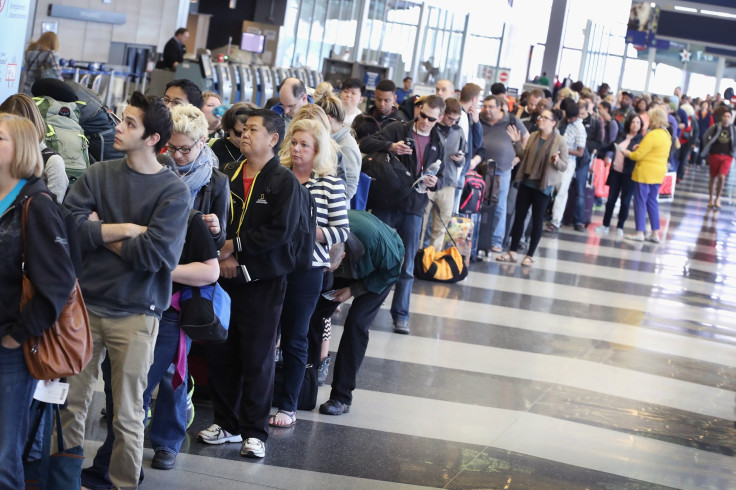Trump Electronics Ban Could Be Extended To Laptops From At European Airports, Including UK

The Trump administration is considering a ban on passenger laptops, tablets, e-readers and other electronics from cabin luggage for those flying into the U.S. from European countries, including the U.K., sources told the Guardian.
The report comes after the U.S. Department of Homeland Security banned laptops, tablets, e-readers, cameras, portable DVD players, travel printers/scanners and other electronics bigger than a smartphone from the passenger cabin on certain flights last month. The rule applies to flights coming into the United States from 10 airports in Egypt, Jordan, Kuwait, Morocco, Qatar, Saudi Arabia, Turkey and the United Arab Emirates.
Read: Trump Misses Promised Anti-Hacking Plan 90-Day Deadline, Has No Team Working On Cybersecurity
After the ban in March, the DHS did not specify if the rule would be extended to other countries on its website but did say “as threats change, so too will TSA’s security requirements.”
The proposed ban for those traveling from Europe would be similar to the one the U.S. implemented on Middle Eastern countries, meaning no electronics bigger than a smartphone will be admitted as carry-on luggage.
Reasons behind the U.S. the possible electronics ban on flights from Europe were unclear.
“We’ve said we will continue to evaluate the threat environment and make determinations based on that assessment, but we have not made any decisions on expanding the current restrictions against large electronic devices in aircraft cabins from selected airports,” the DHS told the Guardian.
Read: Trump May Not Like The Wind Industry, But It Now Employs More Than 102,000 Americans
A ban for passengers coming from the U.K. would impact U.S. airlines since there are a large number of flights from Heathrow Airport to the United States. American airlines operate fewer flights to the Middle East.
The DHS previously said the electronics ban involving Middle Eastern airports was put in place because the U.S. government is “concerned about terrorists' ongoing interest in targeting commercial aviation.” Homeland Security also cited the explosion at Brussels Airport last year and other incidents.
“Evaluated intelligence indicates that terrorist groups continue to target commercial aviation, to include smuggling explosive devices in various consumer items,” the DHS said.
© Copyright IBTimes 2024. All rights reserved.





















